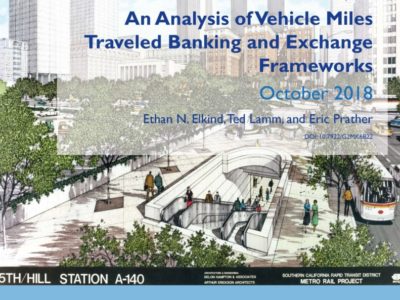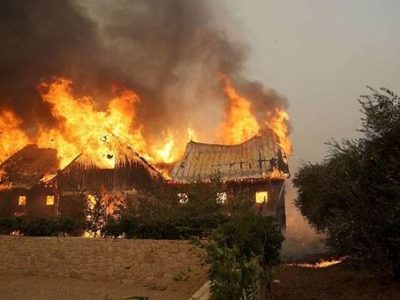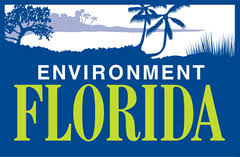If You Can Buy a Coast, You Can Buy a Newspaper
Supreme Court's California Coast Decision Will Be Back, No Matter What the Papers Say
High-fives, or at least, sighs of relief, from environmentalists this week, as the Supremes denied cert in Surfrider Foundation v. Martin’s Beach, a case where Sun Microsystems founder and multibillionaire Vinod Khosla challenged aspects of California’s Coastal Act. Article after article after editorial is celebrating this as a great victory for the environment and the California coast. But even scratching the surface of this case shows 1) that it will be back; a...
CONTINUE READINGBurning in the Heat
Wildfires were bad enough already. Climate change is making them worse.
Fires have been unusually severe lately. According to one scientist, “’[I]n the late 20th and early 21st century, with these hot droughts, fires are ripping now with a severity and ferocity that’s unprecedented,’ says Tom Swetnam. . . . A fire in the Jemez Mountains Swetnam studies burned 40,000 acres in 12 hours, a ‘horizontal roll vortex fire’ that had two wind-driven counter-rotating vortices of flame. ‘That thing left a canopy hole with no trees over 3...
CONTINUE READINGMitigating Increased Driving Miles From New Projects Under CEQA
New Berkeley Law/CLEE report released today; Webinar discussion on Tuesday, October 30th
California law now requires developers of new projects, like apartment buildings, offices, and roads, to reduce the amount of overall driving miles the projects generate. Senate Bill 743 (Steinberg, 2013) authorized this change in the method of analyzing transportation impacts under the California Environmental Quality Act (CEQA), from auto delay to vehicle miles traveled (VMT). In response to SB 743, some state and local leaders are seeking to create special "banks" ...
CONTINUE READINGGuest Bloggers Jennifer Garlock and Michelle Melton: California Enacts Law to Reduce Greenhouse Gas Emissions from Ride-Hailing Companies
Governor Brown Signs SB 1014, Allowing Innovative Approaches to Emissions Reduction
As part of its broader efforts to tackle climate change, California has set its sights on a new, and fast-growing, source of greenhouse gas (GHG) emissions: ride-hailing companies like Uber and Lyft. On September 13, Governor Brown signed SB 1014, making California the first U.S. jurisdiction to require that ride-hailing companies—also known as transportation network companies (TNCs)—reduce their greenhouse gas emissions. The bill is an exciting next step for tacklin...
CONTINUE READINGA Major Challenge for Avoiding Climate Change Hides In Plain Sight
If we probably cannot keep global warming within agreed-upon limits by reducing emissions alone, how could we?
Next week, the international body responsible for assessing climate change will release a special report on the 1.5°C target, an ambitious, international goal to limit global warming that became part of the Paris Agreement in 2015. The report might mark a significant turning point for how policy makers, the scientific community, and others think about responding to global warming. Yet I also think that it will need to go further. Because there is a lot here that might b...
CONTINUE READINGSpreading Like Wildfire
They don't get as much attention as floods or earthquakes, but wildfires are deadly serious.
This is the first of a three-part series about wildfires. Massive wildfires are a growing problem, posing risks to people and the environment. Considering that my house is located only a few miles from the 1991 Oakland Hills fire, which killed 25 people, destroyed 2800 homes, and caused $1.8 billion in damage, this is an issue I take very seriously. Today, I want to focus on the extent of the problem. Here are some examples from the past ten years: Last year, fir...
CONTINUE READINGThe Endangered Species Act in the Supreme Court: Oral Argument Today in Weyerhaeuser v. US Fish & Wildlife Service
Post-Argument Panel at Georgetown Law Will Feature Advocates
Oral argument in Weyerhaeuser v. U.S, Fish & Wildlife Service is this morning, the first day (and first argument) of the new Supreme Court term. The Court will be short-handed, with only eight Justices hearing the case. I'll be attending the argument and speaking on a post-argument panel at Georgetown Law School, along with other advocates in the case, moderated by Prof. Lisa Heinzerling. (I've been told the panel won't be webcast live, but video will be archived,...
CONTINUE READINGSome Things You May Have Missed This Week
The Administration didn’t take the week off from undermining efforts to protect the environment.
As many of us were, I was riveted for much of the past several days by the news and hearings regarding Judge Kavanaugh’s potential appointment to the United States Supreme Court. It’s easy to feel these days as though any one aspect of what’s happening politically at any given moment could occupy all of our time and attention, and this week was no exception. But in case you missed it, this week there were a couple of significant developments on the environmenta...
CONTINUE READINGHigh-Stakes Races in Florida
A Senate seat and the Governor's Mansion are both in play.
Florida has not one but two races this year with national significance. One is the Senate race. The other is the Governor’s race. We all know why Senate races matter, especially this year when the Senate is so closely divided. A gubernatorial race, in contrast, normally would be considered mostly a local matter. But there are a couple of reason why the Florida race has broader significance. First, Florida is due to get additional House seats, and a new Gove...
CONTINUE READINGAnother Dam Climate Adaptation Problem
Report Suggests That Poor Management Intensified Kerala Flood Devastation
The Economic and Political Weekly is one of India's most prestigious journals: for decades it has enjoyed a unique role in driving the Union's policy conversation, partly because it is peer-reviewed. And this week, it contains a devastating report about how poor dam management exacerbated Kerala's horrific floods. It's an obvious issue: if dams have too much water in them when floods occur they can't serve as storage for floodwaters, and they might be topped or even b...
CONTINUE READING











